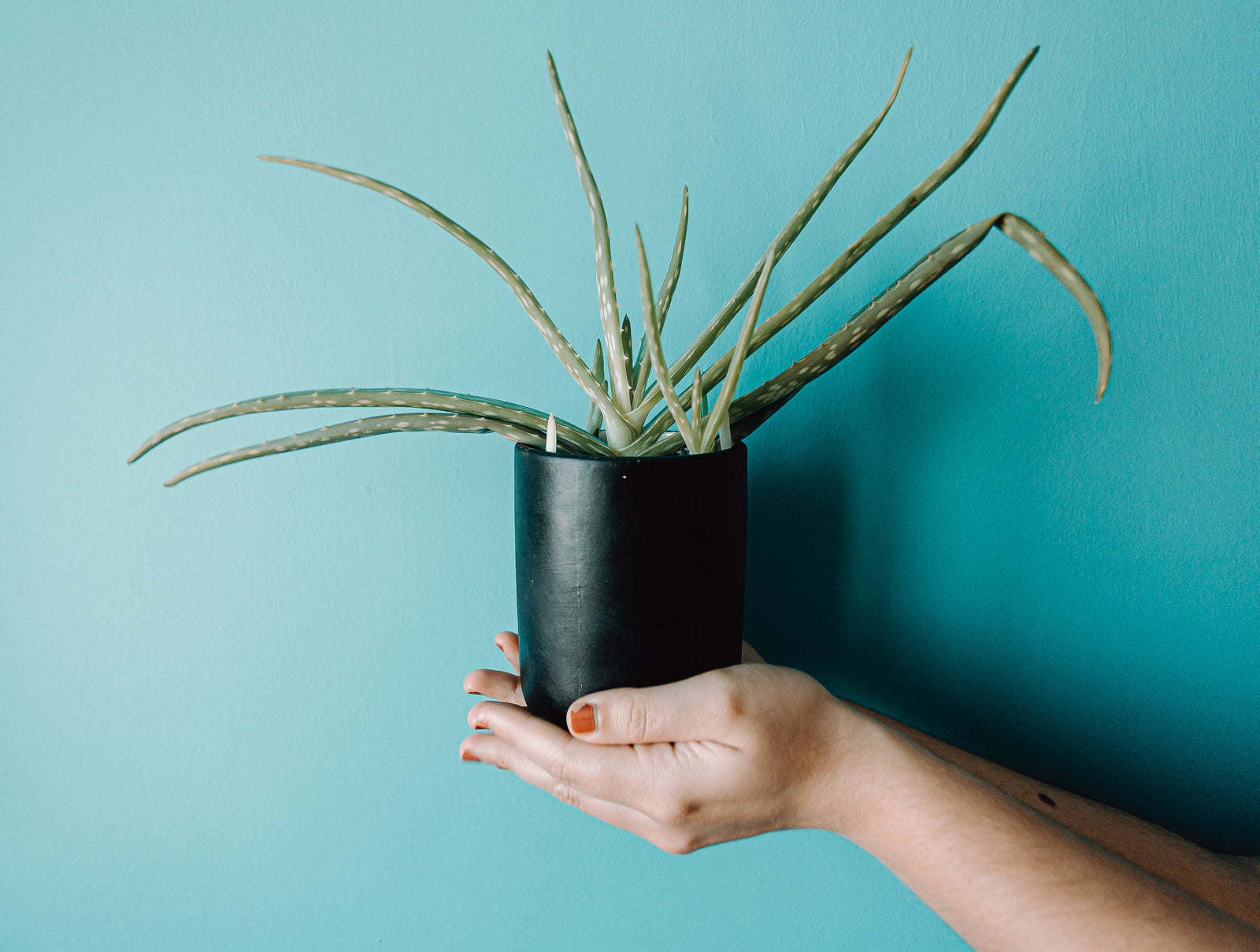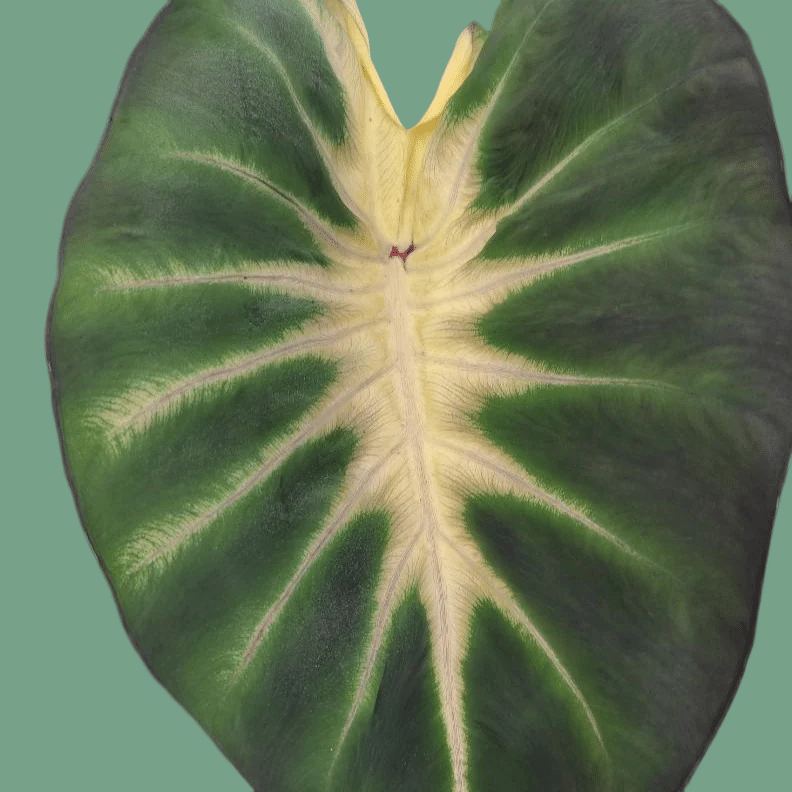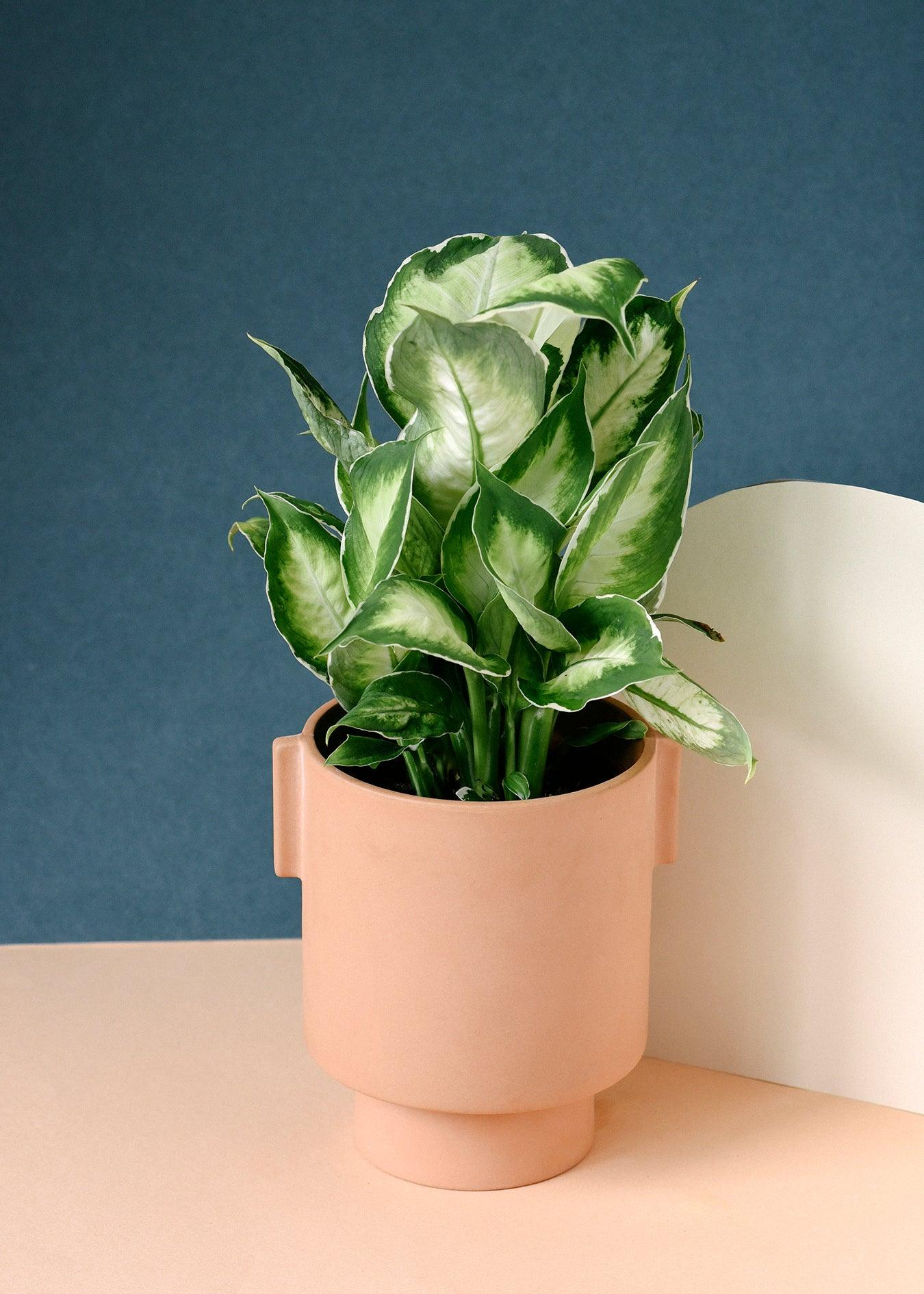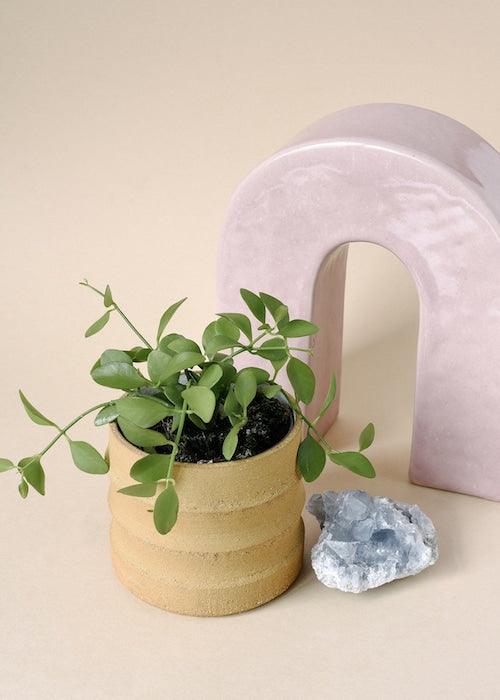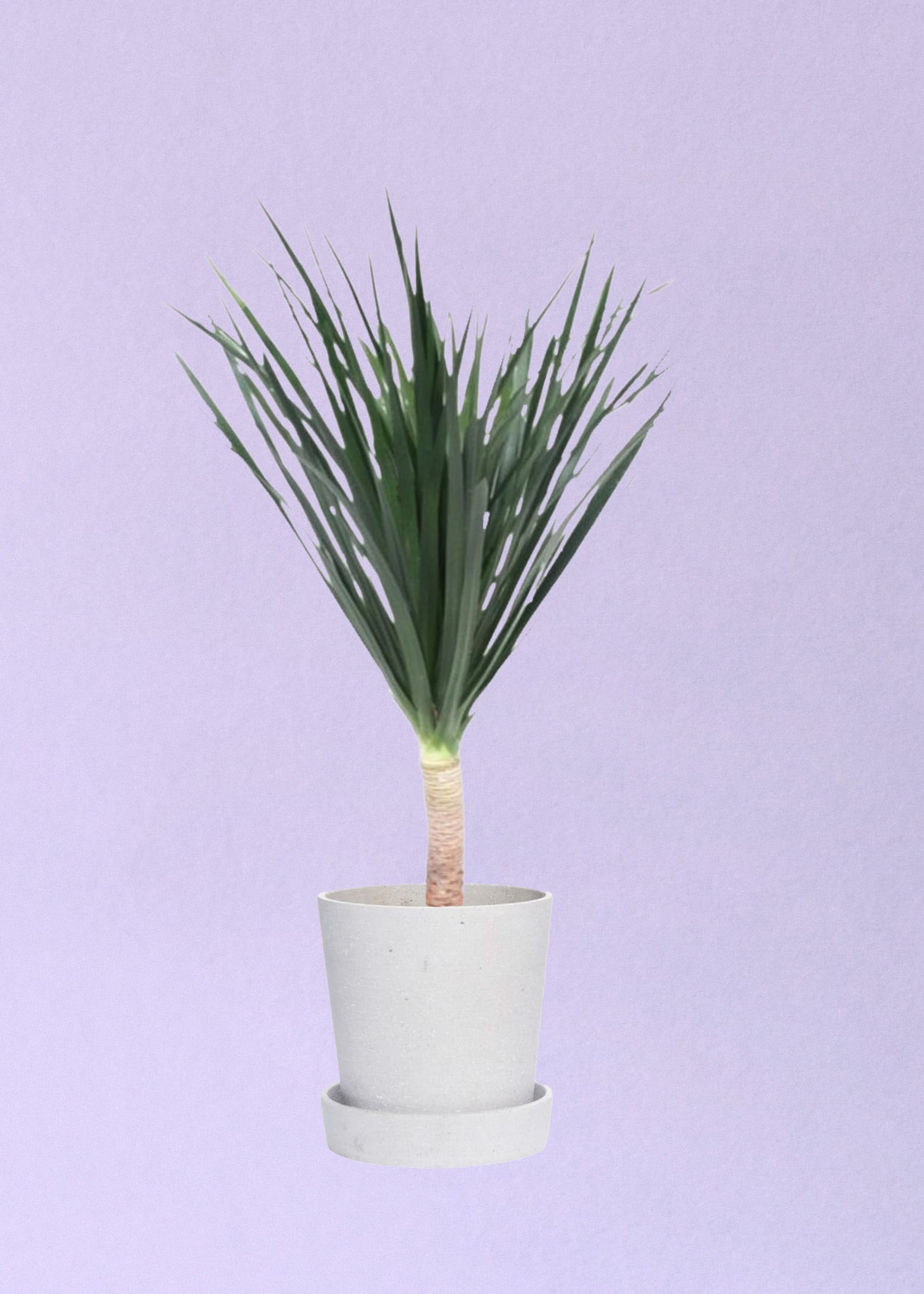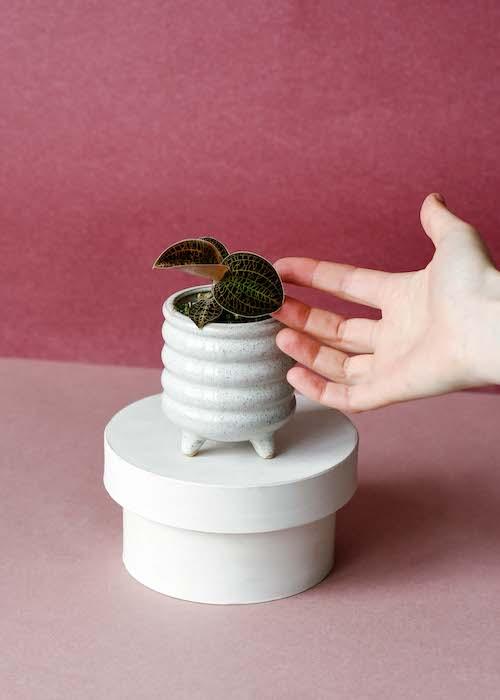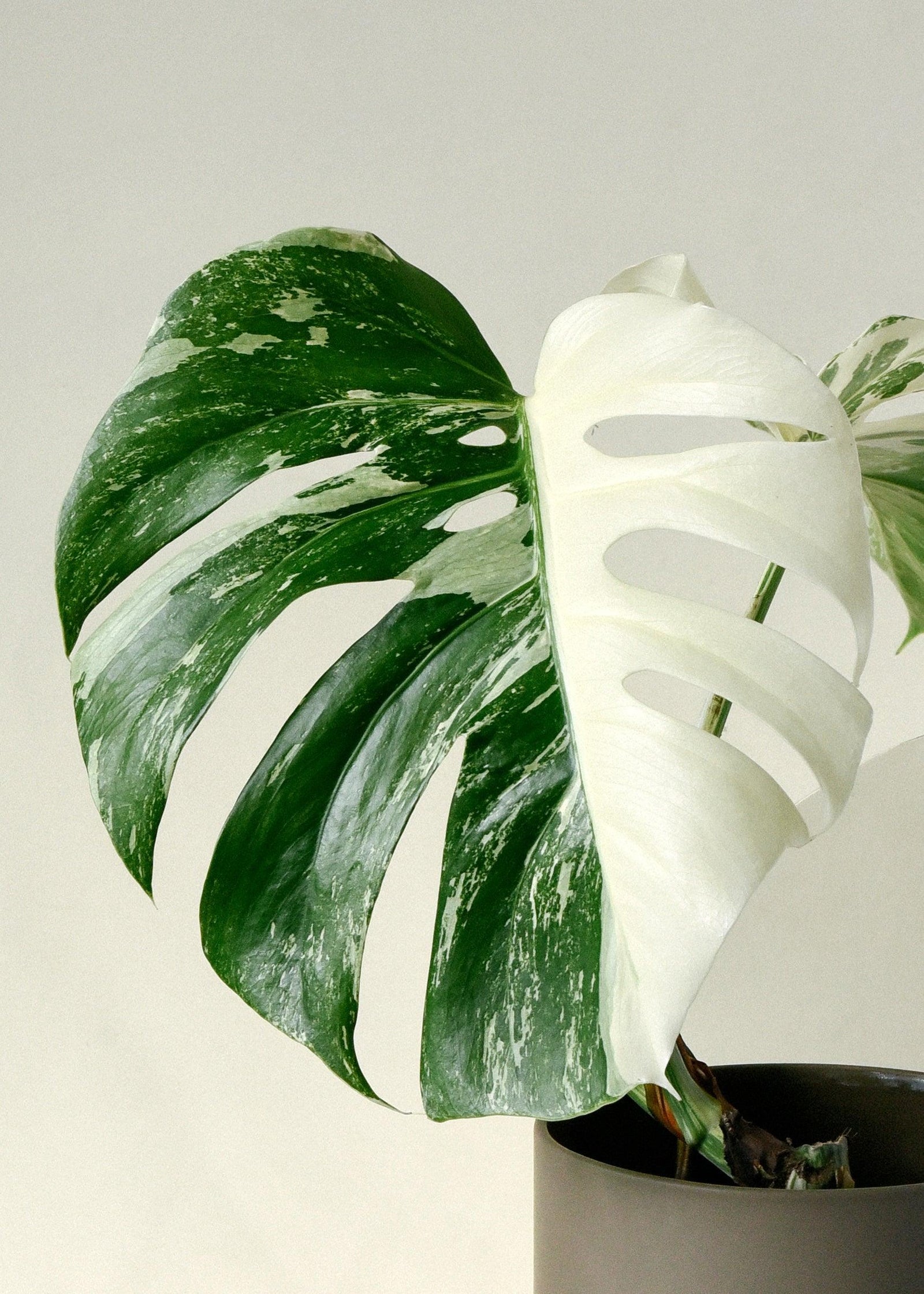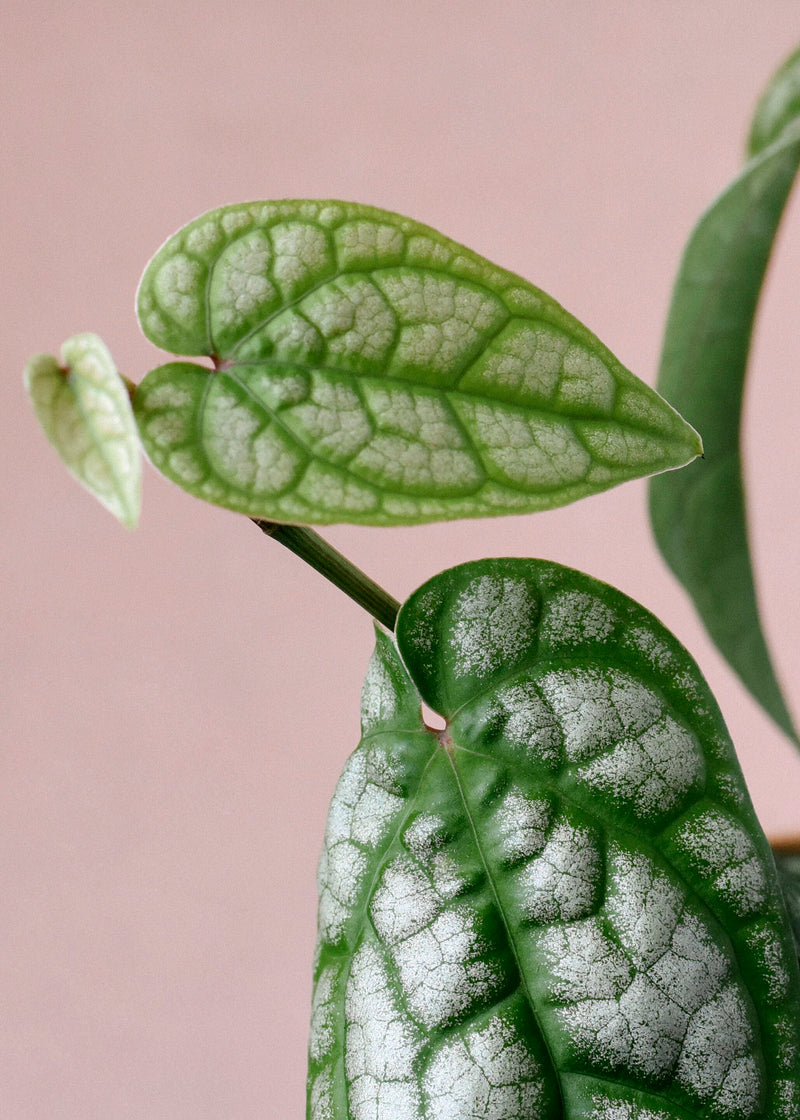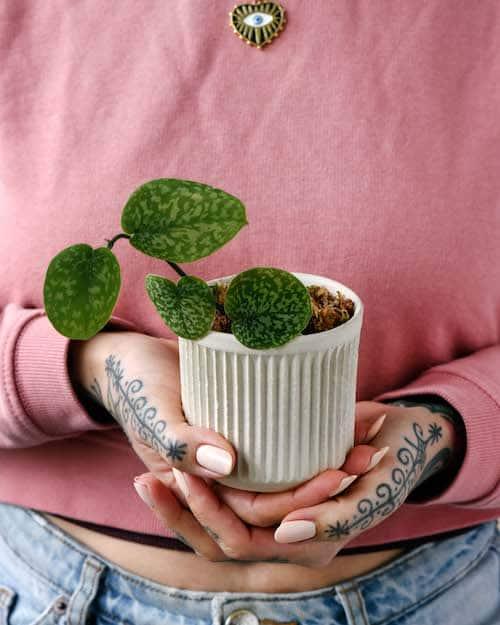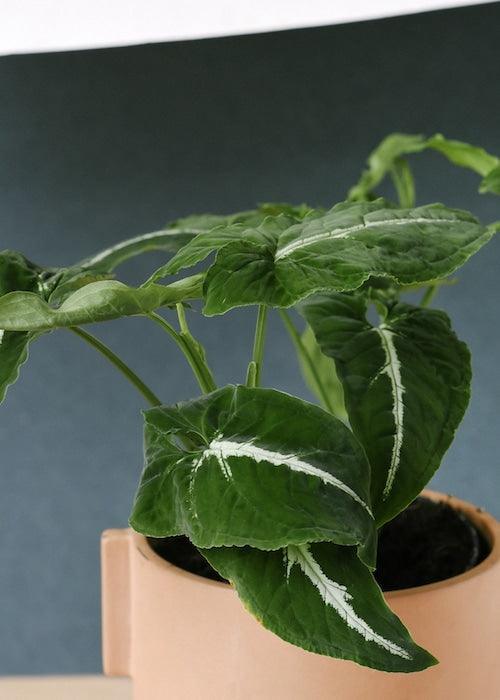by Plant Circle
Scindapsus Care Tips
Light
Scindapsus thrive best in medium to bright indirect light, but will tolerate much lower light conditions. However, be aware that loo little light might cause the leaves to lose their beautiful variegation. Do not expose your Scindapsus to direct light, which might scorch its leaves.
Water
Water thoroughly when the top half of the soil is dry to the touch. Scindapsus can tolerate underwatering, but are much less tolerant of overwatering, so make sure not to water it too much or it will wilt easily. Always remove excess water from the saucer to avoid the plant sitting in water. If the leaves of your Scindapsus start curling on both sides, you have underwatered your plant.
Humidity
Scindapsus are tropical plants, so they will appreciate high humidity and reward you with more growth. However, they make for such great houseplants because they do not require it to thrive. Moderate humidity of 40-50% is just fine for most Scindapsus.
Temperature
Scindapsus, being tropical plants, prefer temperatures of no lower than 18 and no higher than 28 degrees Celsius. Ideally, they should be grown in usual household temperatures.
Soil
Scindapsus love growing in a very well-draining, loose substrate, such as our Aroid Potting Mix, which was developed specifically for plants in the Aroid family. If you prefer mixing soil yourself, we recommend a mix of 1/3 bark, 1/3 perlite and 1/3 coco coir.
Fertiliser
During the growing season, feed your Scindapsus regularly with a liquid fertiliser suitable for houseplants. Do not fertilise your plant during the colder months unless you supplement with grow lights.
Toxicity
Scindapsus are toxic to pets and humans when ingested.
